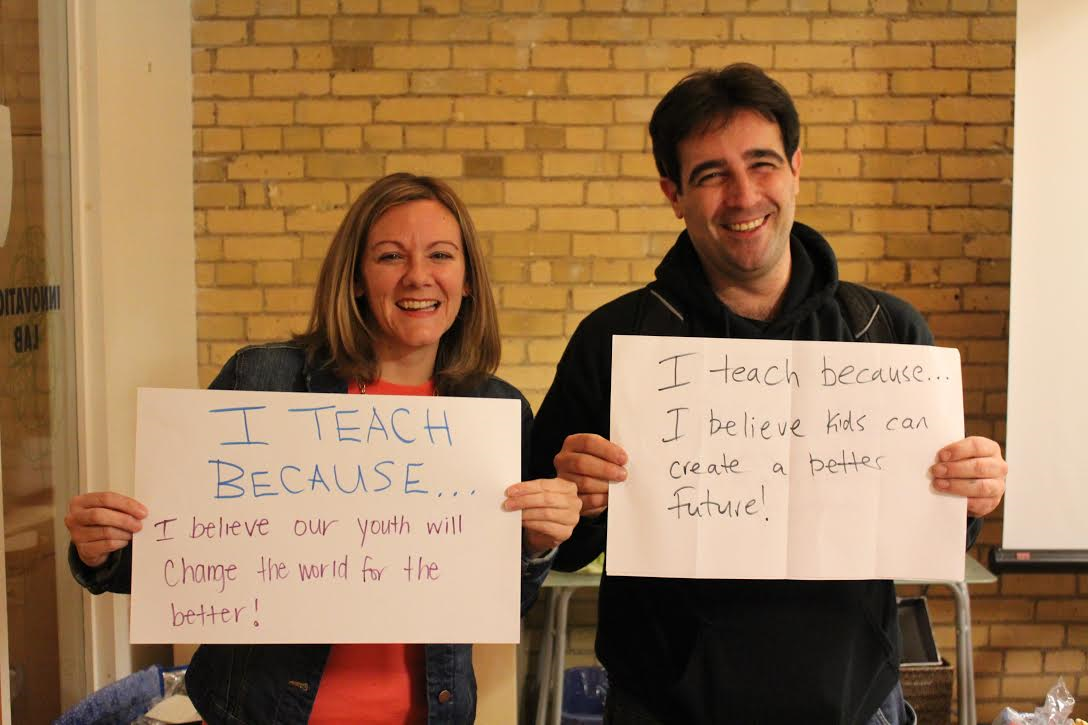In this blog post, Ontario educator, Uthish Ganesh, discusses how he set the foundation for the deep and complex subject matter in the African Diaspora course by focusing the first unit on building community, centering an equity approach and creating space for identity affirming activities. This process created necessary space to explore the layers of identity and its interplay with society and build bridges of commonality, understanding and empathy between students of all backgrounds.
A Valentine's Day Love Letter to Fellow Educators (and to Facing History and Ourselves)
Posted by Lindsay Hutchison on February 13, 2020
Over the past number of years, I have developed quite a lot of love for Facing History and Ourselves. So much so that I thought this Valentine’s Day I would share my love to other educators by sharing five incredible resources, approaches and strategies that Facing History and Ourselves has to offer that I hope will be a gift to fellow teachers and to your classrooms.
Topics: Students, Human Rights, Facing History Resources, Teaching Resources, Teachers, Genocide and Crimes Against Humanities Course
This is part two of Amy Smith’s Blog The Road to Equity: How do you define equity? In part one she discussed her own learning journey of gaining additional knowledge about groups identified as in need of more support in schools in the equity and inclusion branch of Peel Board’s five year School Success Plan. All of her reading and learning encouraged her “to really reflect on the life I was living, and the privileges I have that I was not even aware of simply because I was born in a white, abled, cisgender body.” In part two she will cover how she took her own learning and expertise to help other educators start their journey, to start learning about who they are as people and how their privilege and bias impacts their students.
Topics: Teachers, Culturally Responsive and Relevant Pedagogy, big paper, Equity in Education, positionality, collaborative inquiry
When I moved away from being a classroom teacher to the role of Instructional Coach I knew my passion was in equity work. In Peel we have a five year School Success Plan with one branch of focus dedicated to equity and inclusion. Within the equity and inclusion branch of the plan there are four communities identified as a focus for teachers to gain additional knowledge about in order to better teach and support those students to learn and be successful in Peel schools. The four groups are: students who identify as a part of the LGBTQ+ community, First Nation, Metis and Inuit students, black male students, (this year the focus shifted to all black students) and students living in poverty.
Topics: Teaching Strategies, Teaching Resources, Teachers, Indigenous History, Book, difficult conversations, stolen lives, settler educators, Black History, Equity in Education, Poverty
A call out to all Facing History and Ourselves Educators. We are looking for Facing History and Ourselves educators who would be interested in blogging for us. You do not need any blogging experience. You will be working with myself, Facing Canada blog curator Alysha Groff, each step of the way to develop your blog post. You can propose an idea to write about, or simply let me know your interest, and I will work with you to come up with a blog idea that will best demonstrate your experiences as a Facing History educator. Teachers of any grade and subject area that work to include topics of social justice and equity in their teaching through a Facing History lens can write a blog!
Topics: Facing History and Ourselves, Teachers, Blogs
Facing History Teachers Answer the Question: Why do you teach?
Posted by Facing History and Ourselves Canada on February 22, 2017
Topics: Students, Teaching, Facing History and Ourselves, Teachers, Holocaust and Human Behavior, Holocaust Education, CHG, CHC

-1.png)
.png)
.jpeg)


